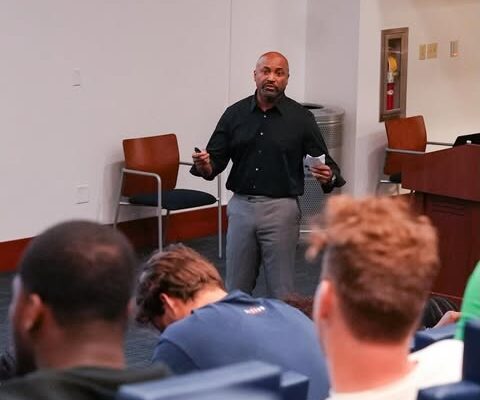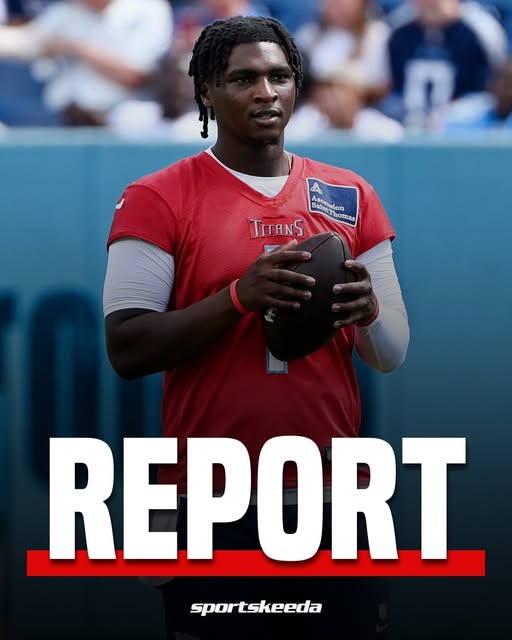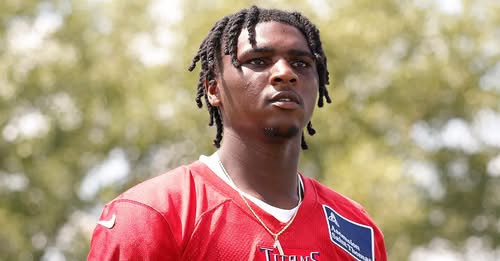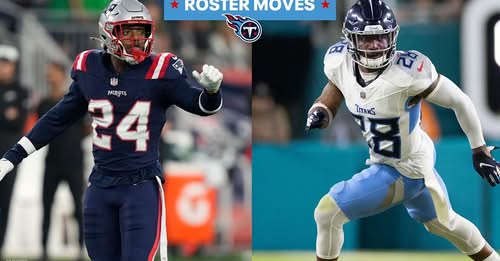A big thank you to one of our own, Bobby Taylor, for speaking with our team about making the transition to the NFL. A 1994 consensus All-American, Bobby now serves as a strategic advisor for football operations at the NFL.
A big thank you to one of our own, Bobby Taylor, for taking the time to speak with our team about one of the most challenging, yet rewarding, journeys any athlete can make—the transition to the National Football League. For anyone familiar with Bobby’s story, it was clear that his words would resonate deeply, not only because of his outstanding accomplishments on the field, but also due to the integrity, humility, and wisdom he brings to the conversation off of it.
Bobby Taylor is not just a name in the annals of college and professional football; he is an emblem of what it means to prepare, compete, evolve, and lead. A 1994 consensus All-American during his collegiate career at the University of Notre Dame, Bobby was widely regarded as one of the most dynamic and technically skilled defensive backs of his era. His presence on the field was a combination of discipline, athletic intelligence, and a relentless drive to get better every single day. It’s no surprise, then, that his performance caught the attention of the NFL, where he would go on to play a decade in the league, most notably as a cornerstone of the Philadelphia Eagles’ secondary.
But when Bobby sat down with our team, it wasn’t to relive the glory days, as tempting as that might be for someone with his résumé. Instead, he brought something far more valuable: perspective. He spoke candidly about what it really takes to transition from college football—a place where players are often the stars of their programs and enjoy the structure and support of their universities—to the NFL, where the stakes are higher, the competition is deeper, and the expectations can feel limitless. He walked us through the mental, physical, and emotional adjustments that players must make, many of which don’t show up in a highlight reel.
One of the key themes Bobby emphasized was the importance of preparation beyond the physical. Everyone entering the NFL is talented. Everyone was “the guy” at their school. But the true differentiator, he said, lies in how well players prepare themselves mentally and emotionally for the demands of the professional game. That means studying film more rigorously than ever before, learning to handle setbacks and criticism constructively, and developing the maturity to treat football as both a passion and a profession.
He also made a point to speak about identity. For many athletes, especially those who have been playing football at a high level since high school or earlier, the sport becomes an integral part of their identity. When they make it to the NFL, it’s the realization of a lifelong dream—but it’s also a transition into a world where football is now a job. There are business decisions, contracts, injuries, and fierce competition for every roster spot. Bobby shared insights about how important it is to develop a strong sense of self outside of the game, to remain grounded in who you are as a person, not just as a player. This advice struck a chord with many of us. The idea that success in football is important, but that long-term fulfillment often depends on the strength of your identity outside the lines, was a profound takeaway.
What stood out even more was Bobby’s emphasis on mentorship and community. During his time in the league, and especially now in his current role as a strategic advisor for football operations at the NFL, he has made it a point to give back, to guide, and to help the next generation of players navigate the complexities of professional sports. His current work is all about shaping the game from within—helping to influence decisions that impact player safety, game integrity, and long-term league sustainability. It’s a role that combines his firsthand experience with strategic oversight, and it was clear that he takes that responsibility seriously. He’s not just advising on policies or operations; he’s helping shape the future of football itself.
When asked what advice he would give to players preparing for the leap to the NFL, Bobby was both honest and encouraging. He urged players to be curious, to ask questions, and to seek out those who have walked the path before them. He reminded them that no one has all the answers—not rookies, not even veterans—and that leaning into mentorship, being open to learning, and constantly adapting are the qualities that often separate a solid career from a great one. He also highlighted the importance of financial literacy, pointing out that while signing bonuses and contracts can be life-changing, they come with responsibilities that many young players are unprepared for. Managing money wisely, surrounding yourself with trusted advisors, and planning for life after football are essential parts of the journey.
Perhaps the most impactful moment of Bobby’s talk came when he reflected on his own transition out of the NFL. Like many athletes, he experienced a sense of loss when his playing days ended. He spoke openly about the emotional and psychological adjustment required to leave behind the routine, the camaraderie, and the identity that comes with being an NFL player. But he also spoke about growth. That period of uncertainty forced him to reevaluate his passions, to develop new skills, and to discover new ways of contributing to the sport he loves. Today, he finds purpose in helping others, in working behind the scenes to support both current players and the game itself.
For our team, hearing directly from someone like Bobby was not just inspiring—it was instructive. It reminded us that success in any field, particularly one as competitive as professional sports, is rarely about talent alone. It’s about the habits you build, the people you surround yourself with, the mindset you bring into every meeting, workout, and game. It’s about resilience when things don’t go your way and humility when they do.
It’s also about service. Bobby Taylor’s willingness to share his journey, his challenges, and his insights is a testament to the kind of leader he is. He could have stayed on the sidelines, content with his legacy and accomplishments. Instead, he chose to step forward, to educate, and to make a difference. And in doing so, he reminded all of us that greatness doesn’t end when the final whistle blows—it simply takes on a new form.
So from all of us, thank you, Bobby. Thank you for your time, your honesty, and your commitment to the game and its people. Your story is not just one of achievement—it’s one of continued growth, purpose, and service. We’re better for having heard it, and we look forward to carrying your lessons with us as we continue our own journeys, on and off the field



